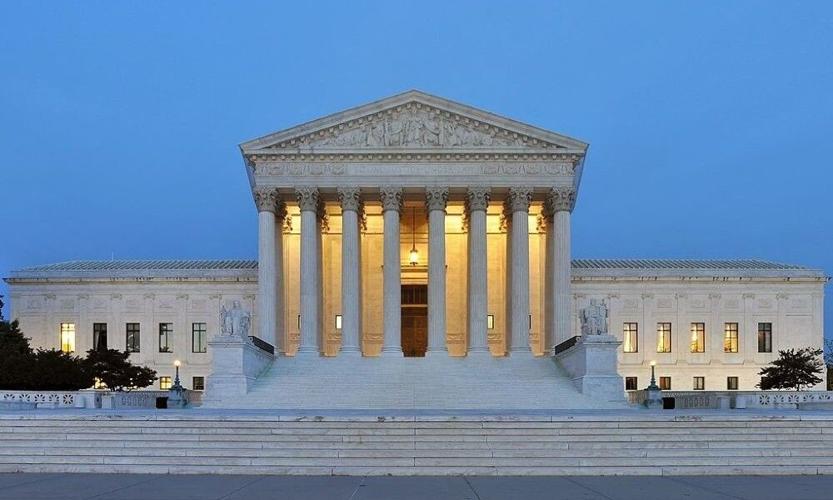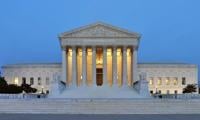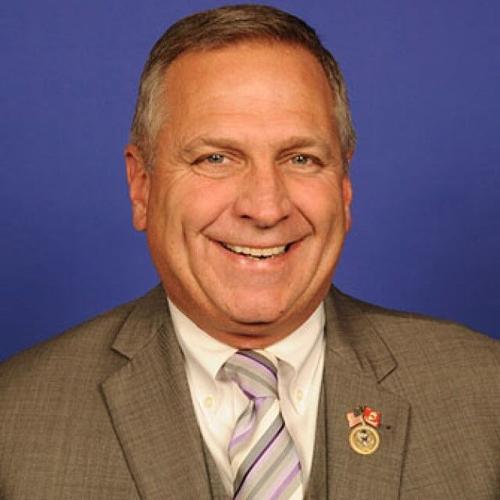
U.S. Supreme Court
WASHINGTON, D.C. - Even as the U.S. Supreme Court is poised to decide if an Illinois Republican congressman can sue to overturn the state's controversial mail-in balloting rules, the high court has decided to accept a different case out of Mississippi that could decide the question at the core of the case:
Whether states, like Illinois, have the constitutional authority to accept and count mailed-in ballots received days or even weeks after Election Day.
On Nov. 10, the U.S. Supreme Court granted the appeal from Mississippi Attorney General Lynn Fitch, agreeing to review the U.S. Fifth Circuit Court of Appeal's ruling striking down Mississippi's Covid-era state law change allowing mail-in ballots to be received and counted in federal races up to five days after the official Election Day established by Congress. The law allowed the late-arriving ballots to be counted if they were postmarked on or before Election Day.
In the appellate decision, however, the Fifth Circuit ruled the elongated ballot receipt period violated federal election law, allowing the state to count ballots that had been cast past the actual deadline.
The full Fifth Circuit then refused to upset that decision, declining the state's request for a rehearing en banc - meaning, before the appeals court's full complement of judges. The denial of en banc rehearing drew five dissents from Fifth Circuit judges who asserted their colleagues would disenfranchise voters and upset the balance of federalism under the Constitution by denying states, which are constitutionally tasked to hold elections and count votes, the authority to set their own deadlines for when those ballots may be received.
The Fifth Circuit majority, however, said that reasoning would leave no limit on the ability of states to jigger and experiment with their election laws, potentially imposing no meaningful time limits on the casting and counting of ballots and creating opportunities for states "to engage in gamesmanship, experiment with deadlines, and renew the very ills Congress sought to eliminate: fraud, uncertainty, and delay."
Both the Republican and Libertarian parties challenged the Mississippi state law.
The law was first enacted in 2020, amid the Covid pandemic. It followed emergency legislation enacted in other states, granting greater leniency to balloting rules to allow people concerned about contracting the illness a more robust opportunity to vote.
The supposedly temporary allowances for mail-in balloting in Mississippi and throughout much of the rest of the country, however, were made permanent in the years that followed.
The practice has drawn sharp criticism, particularly from Republicans, who have asserted late-arriving mail-in ballots have routinely shifted election results for Congress and other races days or weeks after Election Day, regularly turning what appeared to be Republican wins into Democratic victories, particularly in states like California which can take up to a month after Election Day to declare victors in close races.
Democrats have consistently labeled accusations of cheating and fraud as "baseless."
Republicans, particularly, have responded with legal action seeking to persuade courts to declare such extended ballot receipt periods unconstitutional and illegal.
Specifically, they have claimed in court that such vote-by-mail regimes clash with a federal law that establishes an official Election Day for federal offices. Under that federal law, votes must be cast by "the first Tuesday after the first Monday in November of every even-numbered year."
The lawsuits have claimed the lax vote-by-mail rules improperly turn "Election Day" into an election period, without authorization from Congress.
Republican U.S. Rep. Mike Bost has filed suit in Illinois, where Democratic state lawmakers extended the ballot receipt period to two weeks after Election Day. And in California, Bost’s Republican colleague Darrell Issa filed suit to challenge Golden State rules allowing ballots to be counted if received up to one week after Election Day.
In the Illinois case, federal judges in Chicago rejected Bost's lawsuit, claiming he couldn't prove the extended ballot receipt and counting period actually harmed him. In part, they pointed to Bost's lopsided wins in his southern Illinois congressional district - a district gerrymandered by Illinois Democrats specifically to hand Republicans an outsized advantage in that district in order to give Democrats better chances to win in other districts that are often held up as some of America's most egregiously gerrymandered legislative districts.
In that case, Illinois Democrats had also filed briefs against Bost, specifically arguing that restricting mail-in balloting would harm Democrats' ability to elect Democratic candidates.
Bost appealed to the U.S. Supreme Court, which agreed to hear the case. Bost was supported before the high court by the Justice Department under President Donald Trump, who has called for mail-in voting to be severely restrained, if not abolished.
Justices held arguments in the case in early October. They have not yet rendered a decision on whether Bost should be able to continue his lawsuit.
In the meantime, however, the high court also agreed to hear arguments in the Mississippi case.
According to briefs filed in the Mississippi case, the decision may ultimately hinge on the question of whether federal election law governs only when ballots are "cast," or whether it also controls when votes must be "received."
Mississippi and other advocates for extended voting periods have argued the former, saying that as long as state law ostensibly requires mail-in ballots to be postmarked by Election Day, states should be allowed to continue receiving and counting ballots for days or weeks after the congressionally established Election Day.
Challengers, though, echoed the Fifth Circuit majority, saying that reasoning would give states unchecked ability to draw out federal elections as long as lawmakers in those states may wish, all but invalidating the federal Election Day law.
A ruling in the Mississippi case could ultimately also decide the outcome of other lawsuits over extended late vote counting, including Bost's in Illinois and Issa's in California, no matter if courts ultimately decide candidates like Bost can sue.

U.S. Rep. Mike Bost
The Mississippi case has already created rare and odd legal alliances.
Fitch, a Republican, has been supported in the case by a coalition of Democratic state attorneys general, including Illinois Attorney General Kwame Raoul and California Attorney General Rob Bonta. Those attorneys general, along with 20 others, signed on to a brief urging the U.S. Supreme Court to take the appeal, or risk upsetting state election laws throughout the country and inviting chaos.
Fitch has also been supported in the case by groups affiliated with prominent left-wing activist election law firm, the Elias Law Group, which routinely has combatted Republican-led efforts to tighten election rules, such as initiatives to require voters to prove their identity when voting.
The oddity was also reflected in responses to the Supreme Court's decision to take the Mississippi case, as groups who had urged the high court not to review the Fifth Circuit's decision still cheered the decision to take the appeal.
Judicial Watch, a conservative constitutional legal advocacy group which is representing the Libertarian Party in the Mississippi case, cheered the decision by the Supreme Court to hear the case, even though they had argued in legal briefs against it.
"The Supreme Court now has an opportunity to reaffirm that 'Election Day' means what it says under federal law," said Judicial Watch president Tim Fitton in a prepared statement.
"Counting ballots received after Election Day not only violates federal law but encourages voter fraud and undermines voter confidence. The Supreme Court should uphold the historic decision by the Fifth Circuit that sensibly concluded that counting ballots received after Election Day is unlawful.”
On social media platform X, Assistant U.S. Attorney General Harmeet Dhillon, who had sided with Bost, shared an image highlighting the Supreme Court's appeal grant in the Mississippi case, also appearing to praise the decision, saying: "Election Day means Election DAY! Stay tuned!"
Observers said that could indicate the White House may also seek to enter the fray against Mississippi and its progressive allies before the Supreme Court. The Justice Department under Democratic former President Joe Biden had filed in support of Mississippi at the Fifth Circuit in 2024.






